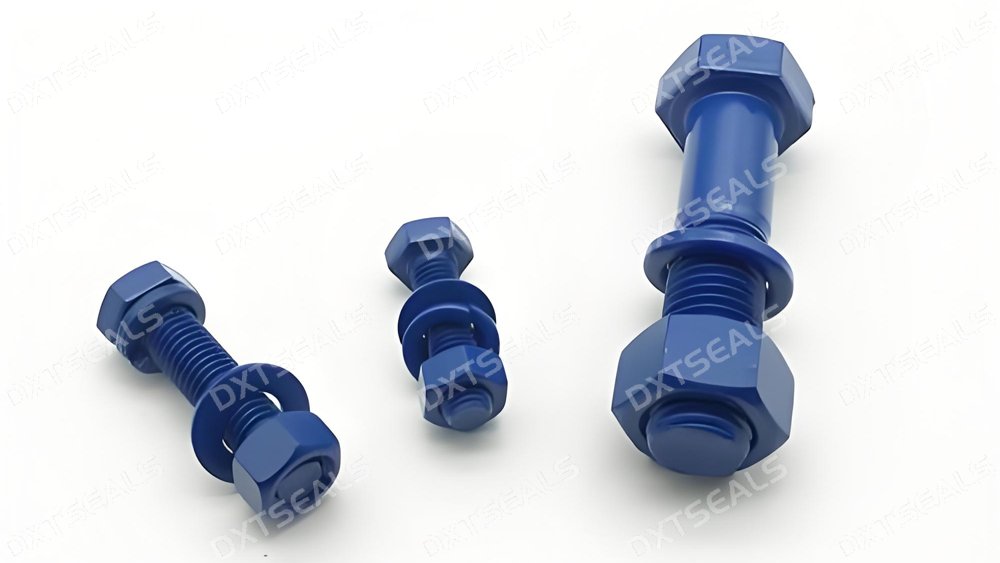
Marine environments are among the most challenging operating conditions for industrial equipment. Saltwater, high humidity, chloride ions, and biofouling can accelerate metal corrosion, leading to sealing failures, structural weakness, and costly downtime. Therefore, understanding the corrosion resistance of different metals is crucial for selecting the right material in offshore, shipbuilding, oil & gas, and subsea sealing applications.
In this article, DXTSEALS compares the corrosion resistance of common metals in marine environments and provides practical selection guidelines.
1. Corrosion Resistance of Common Metals in Marine Conditions
a. Carbon Steel
-
Performance: Poor corrosion resistance in seawater, prone to rusting and pitting.
-
Limitation: Requires heavy protective coatings or cathodic protection for marine use.
-
Application: Best suited for secondary structures or where protection systems are feasible.
b. Stainless Steel (304, 316, Duplex)
-
Performance:
-
304 SS: Susceptible to pitting in chloride-rich seawater.
-
316 SS: Better resistance due to molybdenum addition, commonly used in marine fittings.
-
Duplex SS: Excellent balance of strength and chloride resistance, widely used in offshore equipment.
-
-
Application: Preferred choice for marine fasteners, pumps, and sealing housings.
c. Titanium Alloys
-
Performance: Outstanding resistance to chloride-induced corrosion and seawater. Forms a stable oxide film that protects against pitting and crevice corrosion.
-
Application: High-value use in subsea sealing systems, offshore platforms, and aerospace components operating in marine environments.
d. Copper and Copper Alloys (Bronze, Brass, Cu-Ni)
-
Performance: Natural resistance to biofouling, good corrosion resistance in seawater.
-
Limitation: Can suffer from dezincification in brass and erosion in high-flow seawater.
-
Application: Common in ship propellers, seawater pipelines, and heat exchangers.
e. Aluminum Alloys
-
Performance: Lightweight but susceptible to pitting and galvanic corrosion in seawater.
-
Application: Effective when used with protective coatings, widely applied in marine structures and equipment housings.
2. Key Factors in Metal Selection for Marine Applications
When selecting metals for marine sealing and structural components, consider:
-
Corrosion Resistance: Titanium and duplex stainless steels offer superior chloride resistance.
-
Strength-to-Weight Ratio: Titanium and aluminum provide lightweight benefits for marine transport and aerospace.
-
Cost vs. Performance: Carbon steel is cost-effective but requires protection; titanium is expensive but provides unmatched longevity.
-
Application Environment:
-
Static vs. dynamic seawater exposure
-
Offshore vs. subsea depth
-
Contact with aggressive chemicals (e.g., sulfates, chlorides, CO₂ in oil & gas)
-
3. Practical Selection Recommendations
-
For critical sealing systems in offshore oil & gas, choose titanium alloys or duplex stainless steel.
-
For general marine hardware, 316 stainless steel is a cost-effective option.
-
For heat exchangers and pipelines, copper-nickel alloys offer durability and resistance to seawater erosion.
-
For lightweight structures, aluminum alloys with protective coatings can reduce weight while maintaining acceptable corrosion resistance.
-
For budget-sensitive projects, carbon steel may be used with coatings and cathodic protection.
4. Conclusion
The harsh marine environment demands careful material selection to prevent corrosion-related failures. While carbon steel may be economical, stainless steel, titanium alloys, and copper alloys provide significantly better long-term performance.
At DXTSEALS, we offer expert consultation and customized sealing solutions using the most suitable metal materials to ensure durability, safety, and cost-effectiveness in marine applications.
📩 Contact DXTSEALS today to explore our marine-grade sealing components and material recommendations.
